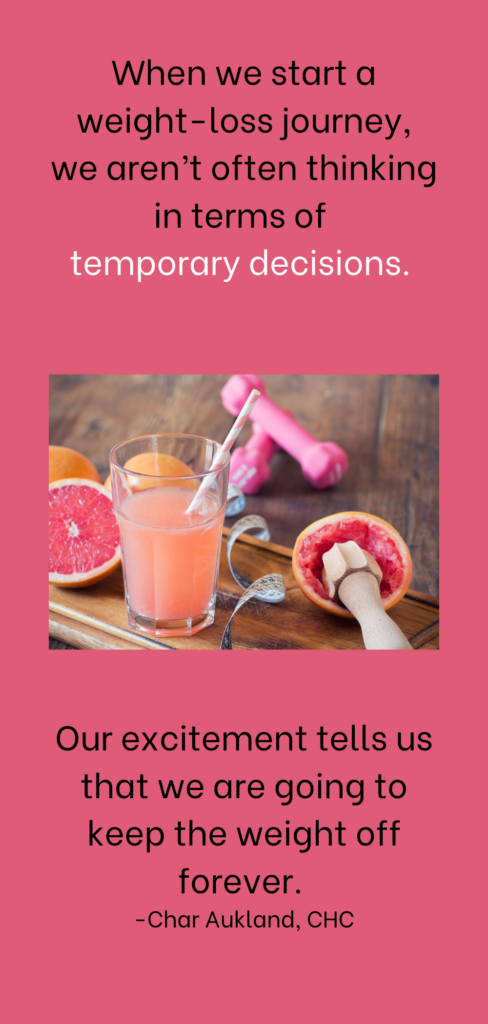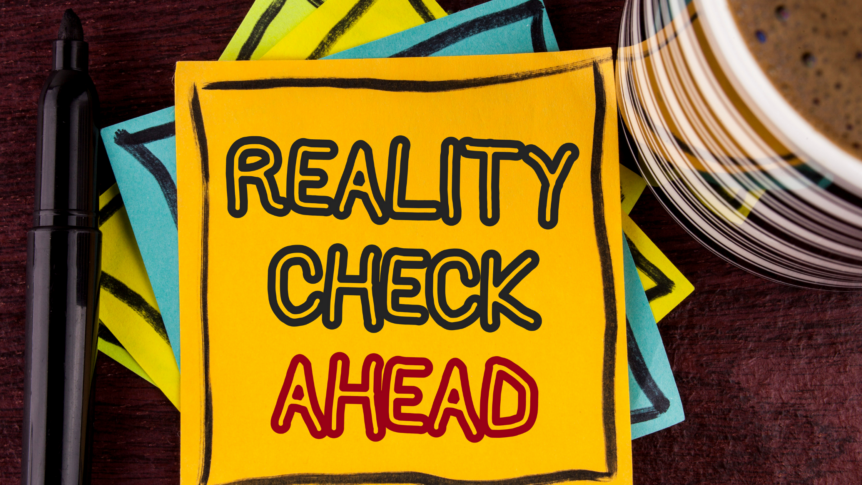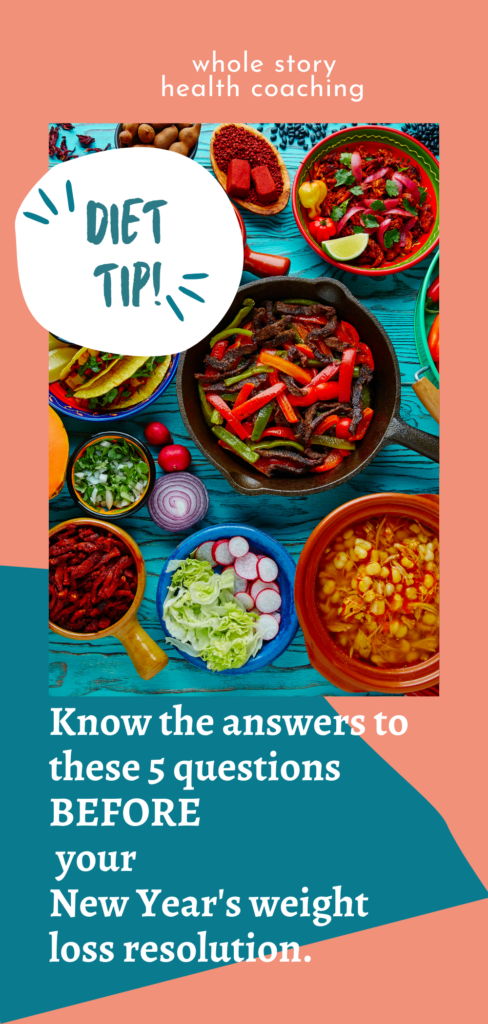Personal failures, over the years, have shown me how hard weight loss issues are to overcome.
With an overweight father and a weight conscious mother, the topic and struggle of weight loss have always been a part of my life.
Actually, I don’t remember a time when I wasn’t aware of my love of food…eating habits… and my weight.
Once high school started, weight was almost all I could think about. If only I could go back and talk to my younger self…
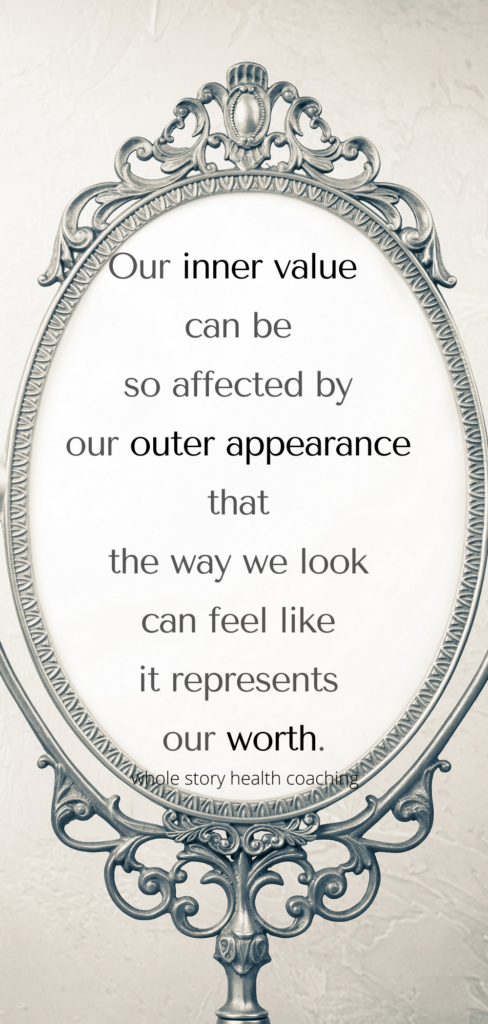
Although there are many lessons I’ve learned, below are some truths I wish I had known about weight loss before I got started on any of my previous attempts.
Despite having successfully kept the weight off for almost six years, I still have to maintain my awareness of my eating habits, triggers, and health behaviors.
Wish I Knew #1: Failure is a part of the process
I have started and stopped more weight loss attempts than I can count. Each time was supposed to be the last. But eventually, I would end up gently slipping off the wagon. And then, being left by the wagon.
Nothing seemed to work for very long and I ALWAYS gained the weight back.
My self-esteem and confidence was challenged and chipped away, every time I failed to achieve or maintain my goals.
What I Know Now:
In my current weight loss endeavor, I have maintained my weight for the last five (almost 6 years).
Part of my consistency has been due to learning from my mistakes along the way. In fact, most of my self-awareness has come from not getting things right the first time.
It’s important to keep in mind that failure can become a tool…with the right mindset. When we fail, we gain insight into what does and doesn’t work for us.
From there, we can begin to make the adjustments necessary to move us closer to our goals—using our past failures, mistakes, and lessons as trampolines to catapult us even further.
Wish I Knew #2: Self-perception and self-worth matter
My actual weight loss journey and struggles span over 30 years. In high school, I was convinced that I was “bigger” than my friends. Skinny was “in” and it wasn’t me.
Looking back, I wasn’t that much bigger…and I certainly wasn’t overweight. My self-perception was flawed.
Around age 22, I developed a stomach illness and couldn’t eat for a couple of weeks. I lost so much weight, I was skeletal.
Everyone around me was concerned, but I was happy. I was finally skinny. No matter the reason why.
What I Know Now:
Our views of ourselves can be so affected by our outer appearance that the way we look can feel like it represents our worth.
For example, take a look the weight loss transformation videos across social media. In so many posts, there is an overweight female whose demeanor reflects her unhappiness.
Once the weight comes off, her clothes and attitude are different. But here’s the thing…self-love should never be about what you are able to fit into.
When we can only love ourselves or be confident at a certain weight, we have to look at what is driving that type of conditional love.
Wish I Knew #3 : It doesn’t change who you are on the inside.
This is what I was counting on and it’s exactly what did not happen.
My outer behaviors changed. I seemed more confident and dressed more flamboyantly, but inside I was still insecure and still unhappy with who I was.
The same issues that were there when I was overweight were there when I lost the weight. Still unresolved.
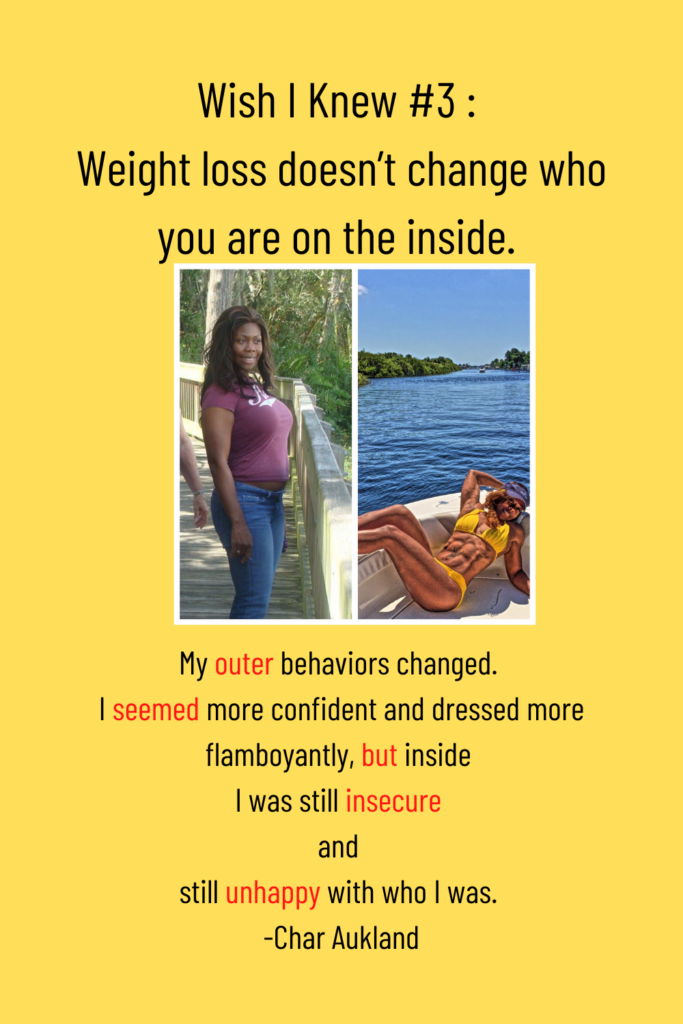
What I know now:
It took quite a few years into my weight loss journey before I was able to shed my inner weight and become healthier from the inside out.
I see so many women that feel like weight loss is the answer to their self-esteem issues—and their relationship problems.
They feel that losing the weight is going to somehow transform their entire life… but here’s the thing, unless you do the work on those issues (separate from losing weight) they don’t resolve on their own.
Waiting for your outside appearance to be a remedy for your inner turmoil will take a lot longer than you realize—if it happens at all.
Wish I Knew #4: The quest for weight loss can lead down destructive paths
Over the years, as I tried and gave up on losing weight, I made some unhealthy and dangerous mistakes.
After I recovered from the stomach illness that I mentioned above, I dealt with my first bout of disordered eating.
Besides purging after eating, one of my regrets was seeing food as the villain and supplements (especially appetite suppressants and fat burners) as my personal saviors.
What I know now:
Food is not the enemy. Our choices are what we should concentrate on—and the why behind them. Below are a few areas that weight loss gimmicks can’t fix:
- our relationship with food
- emotional eating
- self-control
- moods
- restful sleep
Quick outer results are temporary bandaids we place on inner wounds. Until we address the source and change from within, we will continue on in these vicious cycles.
Wish I Knew #5: Looks can be deceiving
This is a biggie. We see magazine and social media images of beautiful bodies , without a clear understanding of the factors involved. We certainly don’t see the whole story.
What I know now:
In addition to differences in genetics, age, body type, digestion, and metabolism (to name a few), there may be other issues at play, like:
- disordered eating
- OCD type eating and exercise habits
- unhealthy supplementation
- an unbalanced diet
- mental and emotional health issues
The key thing to remember is that we should not compare ourselves to or base our goals on what we see or what someone is posting. We are all unique.
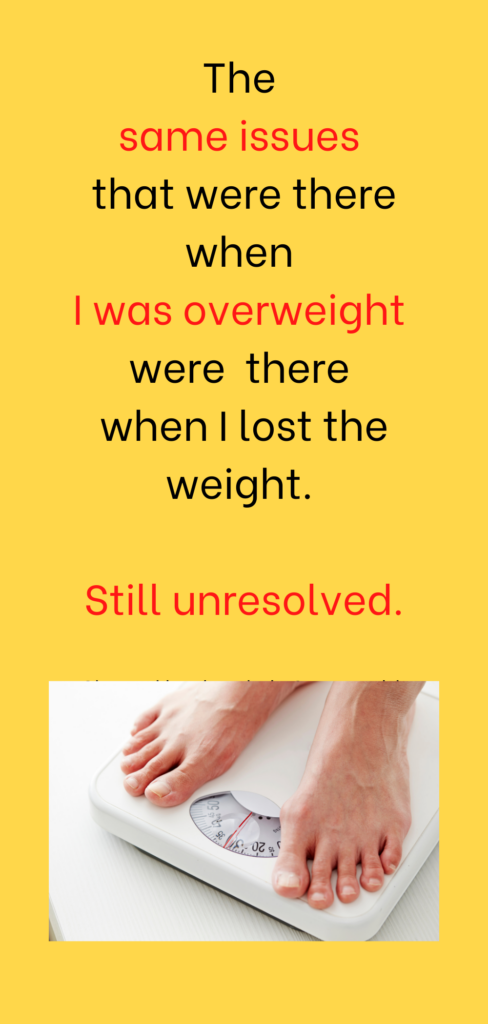
Wish I Knew #6 : Weight maintenance is the hard part
This was another area that took me by surprise. The excitement and momentum of losing the weight wasn’t enough to sustain my efforts afterwards.
Eventually becoming bored and tired of eating the same things over and over, I slowly started to go back to some of the habits that I had never quite gotten rid of.
The momentum was gone… the excitement was gone… and now it was just me, life, and discipline. And my discipline was seriously lacking.
What I know now:
Realistically, we have to make a mindset shift. We have to understand that going back to our old eating habits means we will go back to our old weight.
When we start a weight-loss journey, we aren’t often thinking in terms of temporary decisions. Our excitement tells us that we are going to keep the weight off forever.
We don’t realize that the initial excitement doesn’t have that type of lasting power (which is one reason people struggle to maintain their New Year’s resolutions).
However, planning, developing values-based habits (yes…it can be done), and being realistic all have the power to help us to maintain our hard-won results.
Wish I Knew #7: You still have to deal with the issues that caused the weight gain.
Some issues go deeper than others. For example, I love the taste of food, I love chewing, textures, and I love the eating experience. These are all things that contributed to my weight gain.
I wasn’t simply eating my food, I was enjoying myself. Food had become an integral part of my happiness.
Being an emotional and impulsive eater, I ate when I was bored, sad, and anxious. My fullness cues were meaningless. I simply did not want to stop.
What I know now:
Those driving forces did not disappear because I went on a diet.
They were temporarily kept in check, but once real life starts to intervene and interrupt our new routines, our new habits can quickly fall by the wayside.
The following questions are tough but require an answer to avoid repeating your history.
- What was going on during your weight gain?
- Why did you allow yourself to get to that point?
- What is your relationship with food?
- What are your trigger foods and why?
- Do you use food to cope?
Weight gain and loss are all about our choices—and the reasons behind them.
Wish I Knew #8: The number on the scale means a lot more than we realize it does.
Here’s why that matters. In many instances, we unknowingly attach an emotional and self-worth type of significance to the numbers on the scale.
I’ve seen it time and again, as well as experienced it personally. People often want to go back to the size they were when (fill in the blank). The questions to ask are, What is the significance of that:
- Time?
- Weight?
- Fitting into that outfit?
What I know now:
Being able to answer those questions can reveal quite a bit about how we actually feel about ourselves and can help us heal that perception.
Rather than strictly focusing on physical health or physical appearance, we have to remember that our mental and emotional health are a part of the weight loss journey…parts that should not be neglected.
Wish I Knew #9: Eating for health and not just appearance makes it a lot easier to stick to goals.
I never would have guessed that. When I first started out, I was so obsessed with my appearance and my quest to feel better about myself, health wasn’t a thought.
Because of that, not only did I engage in unhealthy behaviors like overexercising, and disordered eating— but, as long as I was happy with my appearance (or could hide my appearance), I didn’t monitor my habits or goals nearly as much.
What I know now:
Eating for health (including mental and emotional) is a big deal!
Instead of relying on supplements, I try to make sure that I eat a well-balanced diet.
It allows me to get the micronutrients that I need, while allowing me to chew and enjoy the process of eating.
Interestingly studies have shown that chewing is actually a stress reliever — which may have contributed to the relief aspects of my emotional eating (in addition to eating comfort foods , of course).
